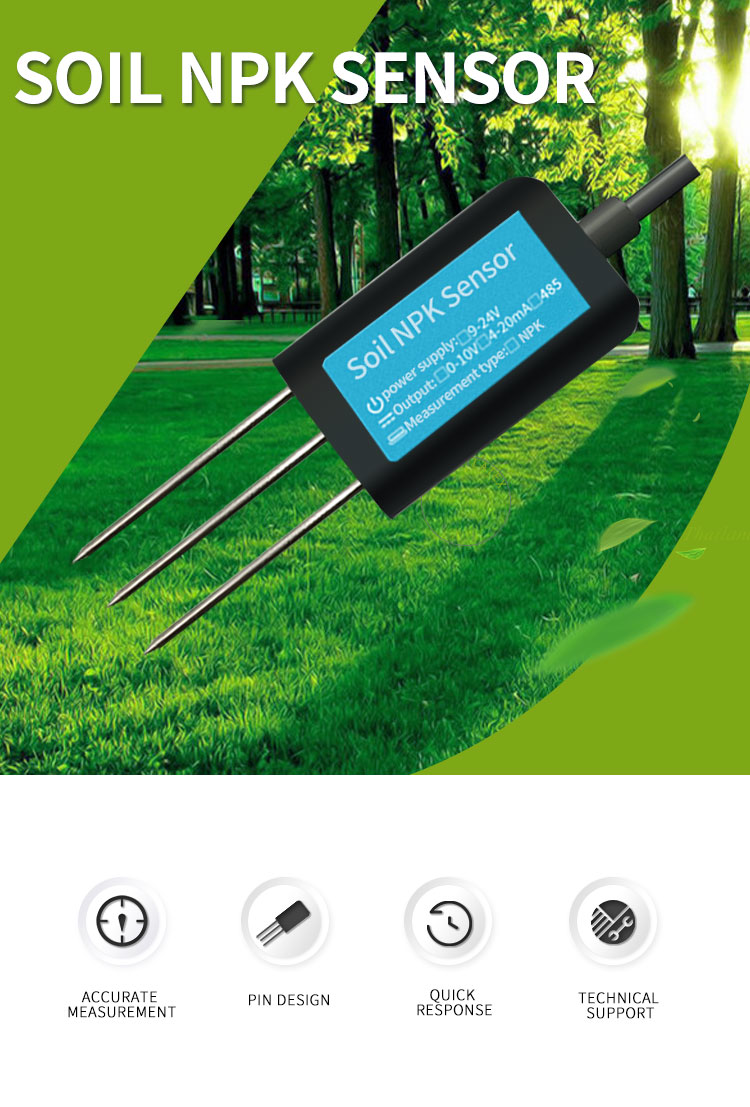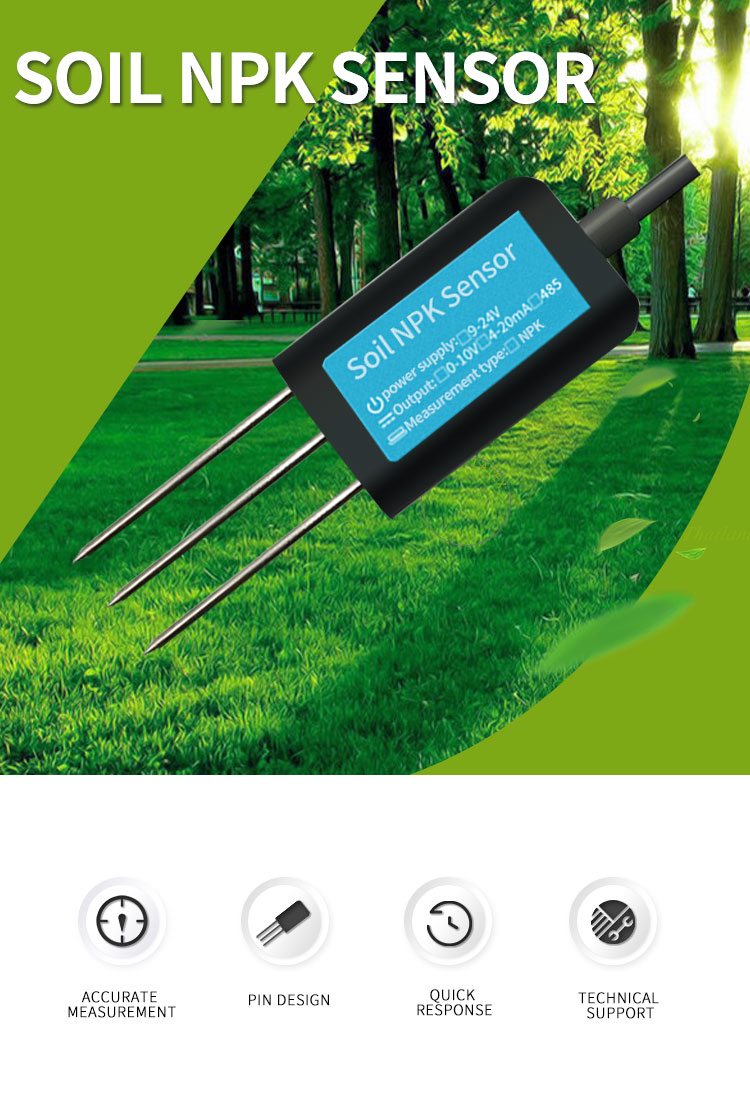In recent years, agricultural technology has advanced by leaps and bounds, transforming the way farmers approach their work. One such technological innovation that holds immense potential in maximizing farm productivity is soil sensor technology. Soil sensors are devices that can accurately measure and analyze various parameters of the soil, providing valuable insights to farmers for optimizing their farming practices. In this article, we will explore the significance of soil sensor technology and how it can unleash the true potential of farm productivity.
Understanding Soil Sensor Technology:
Soil sensor technology involves the use of specialized devices that are capable of collecting data on key soil parameters such as moisture levels, nutrient content, pH balance, and temperature. These sensors are embedded in the soil at different depths, gathering real-time information about the soil's condition. The collected data is then transmitted wirelessly to a centralized system or directly to the farmer's devices, allowing for informed decision-making.

The Role of Soil Sensors in Farm Productivity:
a. Precision Irrigation: Proper irrigation management is crucial for crop health and yield. Soil sensors provide farmers with accurate information about soil moisture levels, enabling them to optimize irrigation schedules. By only watering when necessary, farmers can avoid overwatering, which can lead to water wastage and leaching of nutrients. Similarly, under-irrigation can result in crop stress and reduced productivity. With soil sensors, farmers can implement precision irrigation techniques, ensuring that crops receive the right amount of water at the right time, leading to optimal growth and improved productivity.
b. Nutrient Optimization: Soil nutrient levels have a direct impact on crop health and yield. Soil sensors play a vital role in monitoring nutrient content, allowing farmers to fine-tune their fertilizer application. By understanding the specific nutrient requirements of their crops, farmers can avoid over-fertilization, which can be detrimental to the environment, and under-fertilization, which can limit crop growth. Soil sensors enable precise nutrient management, ensuring that crops receive the necessary nutrients for optimal productivity.
c. pH Balance Regulation: Soil pH directly affects nutrient availability to plants. Different crops thrive under specific pH conditions. Soil sensors provide farmers with real-time data on soil pH levels, enabling them to adjust if necessary. By maintaining the optimal pH balance, farmers can create an environment where crops can efficiently absorb nutrients, leading to improved growth and increased productivity.
Benefits of Soil Sensor Technology in Farming:
a. Increased Efficiency: Soil sensor technology allows farmers to make data-driven decisions, enhancing efficiency in farming practices. With accurate information about soil conditions, farmers can optimize irrigation, nutrient application, and other farming activities. This reduces resource wastage and maximizes the use of available resources, resulting in increased overall efficiency.
b. Enhanced Crop Quality and Yield: By leveraging the insights provided by soil sensors, farmers can create optimal growing conditions for their crops. This leads to enhanced crop quality, improved disease resistance, and increased yields. Crops grown with precise monitoring and management of soil parameters are healthier and more productive, thereby maximizing farm productivity.
c. Resource Conservation: Soil sensor technology facilitates resource conservation, particularly water conservation. By avoiding over-irrigation through real-time monitoring of soil moisture levels, farmers can reduce water usage and conserve this precious resource. Additionally, optimizing nutrient application minimizes fertilizer wastage, reducing environmental pollution and preserving soil health.
d. Cost Savings: The efficient use of resources enabled by soil sensor technology translates into cost savings for farmers. By avoiding unnecessary irrigation and fertilizer use, farmers can reduce their expenses and improve profitability. Moreover, higher crop yields resulting from optimal growth conditions lead to increased profits.
e. Environmental Sustainability: Soil sensor technology promotes sustainable agricultural practices. By precisely monitoring soil conditions and applying inputs only when necessary, farmers can minimize the environmental impact of their farming operations. Reduced fertilizer usage helps prevent nutrient runoff, protecting water bodies and preserving ecosystem balance.






